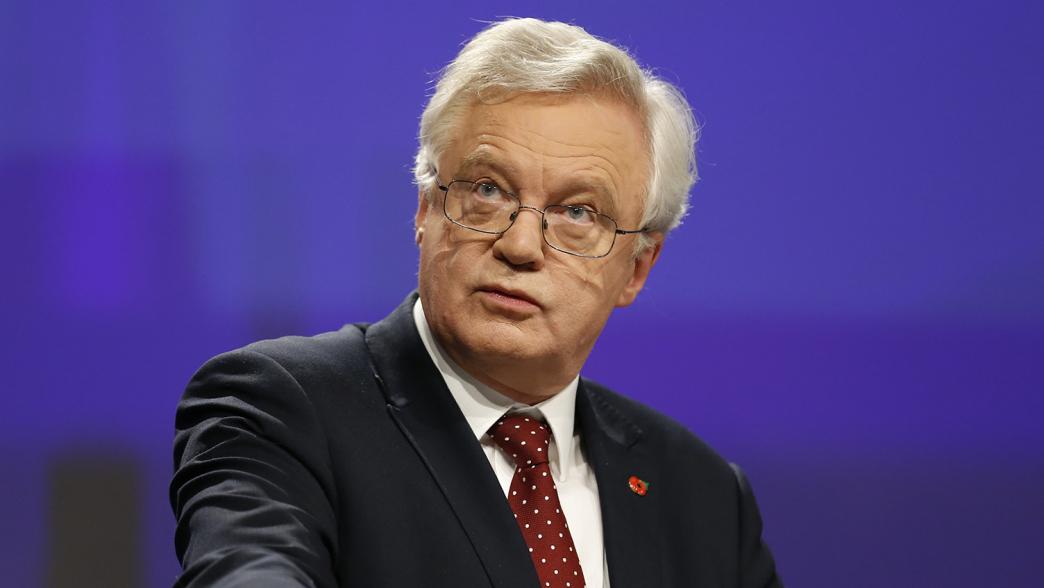David Davis’s frustrations with the civil service overlooks where problems really exist
Ministers who blame civil servants for problems are overlooking their power to shape how they work with officials.

Ministers who blame civil servants for problems are overlooking their power to shape how they work with officials – and forgetting that political conflict is often the cause of their frustrations, says Maddy Bishop
Former ministers’ frustrations with the civil service were a feature of the latest round of the IfG’s Ministers Reflect interviews. Notably, former Brexit secretary David Davis told us that “Whitehall did a really crap job of negotiation” and accused officials including Olly Robbins, his permanent secretary at the Department for Exiting the European Union, of “running a parallel policy separate to the department”.
While it is legitimate for ministers to raise complaints about the support they receive from officials, they often underestimate their own influence over the way the civil service works. Our interviews illustrate that ministers get better support when they clearly communicate their needs to officials. And what ministers perceive as civil service obstructionism or incompetence can sometimes actually be the result of political decisions made by more senior ministers and fed down through the system.
Civil servants need to understand the political environment in which ministers operate
Ministers are right to complain about a lack of political awareness and parliamentary understanding in the civil service, and its implications for policy making. When entering government in 2010, Maria Miller was unimpressed that officials assumed they should “structure everything exactly as it was under Labour and that that was exactly what the new incoming government would want to do.” In order to support ministers effectively, civil servants need better training on parliament with a focus on ensuring policy advice takes account of the current political context.
Officials must also consider the practical demands on ministers in their role as MPs or, more rarely, peers. They sometimes fail to appreciate ministers’ significant responsibilities in their constituencies or the importance of spending time politicking in the parliamentary tea rooms. Caroline Dinenage told us how she was reduced to tears after a series of mistakes by civil servants in her private office forced her to reschedule constituency and family commitments without notice. In response, she got her private office to travel the two-and-a-half hour commute to her constituency, including a ferry ride, “so they could get their head around the fact that my role was not just as a minister, that I actually had other responsibilities as well”.
Ministers should clearly articulate what they want civil servants to do differently
Ministers should not underestimate their own influence over the way the system operates. If they are unsatisfied by the support they are receiving from officials, they should say so. Civil servants respond best to clear directions and have a responsibility to respond to ministers’ requests for the support they need. Caroline Dinenage stressed the active role ministers can take in “how you build your private office and how you construct it in a way that’s going to support you to do the job properly”.
Lord Frost was struck by “the power of the ‘normal way of doing things’” in government, and when first starting out as a minister he found it frustrating to work through conventional processes, such as reviewing papers in an evening red box. But civil servants were willing to adapt to his preferred way of working, and although it made the Cabinet Office “uncomfortable” Lord Frost says he found it “pretty easy to set it up the way [he] wanted” with an electronic inbox, taking a view on work as it came in.
Ministers sometimes mistake political problems for civil service obstructionism
When ministers struggle to get things done in government, it can be tempting to blame bureaucratic inertia and red tape. But civil servants are often only responsible for passing on decisions made by more senior ministers. Jim Murphy recalled the galling experience of a secretary of state swooping in to “take ownership of the three or six months of work that you had put into something as a junior or middle-ranking minister”.
The situation is similar when No.10 takes an interest in a department’s work. David Davis holds Whitehall responsible for “doing a really crap job of negotiation” and “running a parallel policy” on Brexit, but he also acknowledges that his permanent secretary Olly Robbins was put in an “impossible position” in his second role as sherpa to Theresa May and that “it couldn’t have happened if not for the prime minister. She created this dual role for him”. It is truer to say that the prime minister was running a parallel policy to his department than that civil servants were.
Ministers and officials work together best when they understand the pressures and constraints on each other. Ministers are right to expect better support from the civil service – in particular, to point to the way the system struggles to respond quickly to changing needs and political circumstances. But ministers should also recognise their own power within that system. Blaming the civil service for problems caused by conflicts between ministers only distracts from areas where officials legitimately need to step up their game.
- Topic
- Ministers Civil service
- Keywords
- Civil servants Cabinet
- Political party
- Conservative Labour
- Administration
- May government Johnson government Cameron government Blair government
- Department
- Department for Exiting the European Union Department for Digital, Culture, Media and Sport Department for Work and Pensions
- Series
- Ministers Reflect
- Public figures
- Theresa May
- Publisher
- Institute for Government